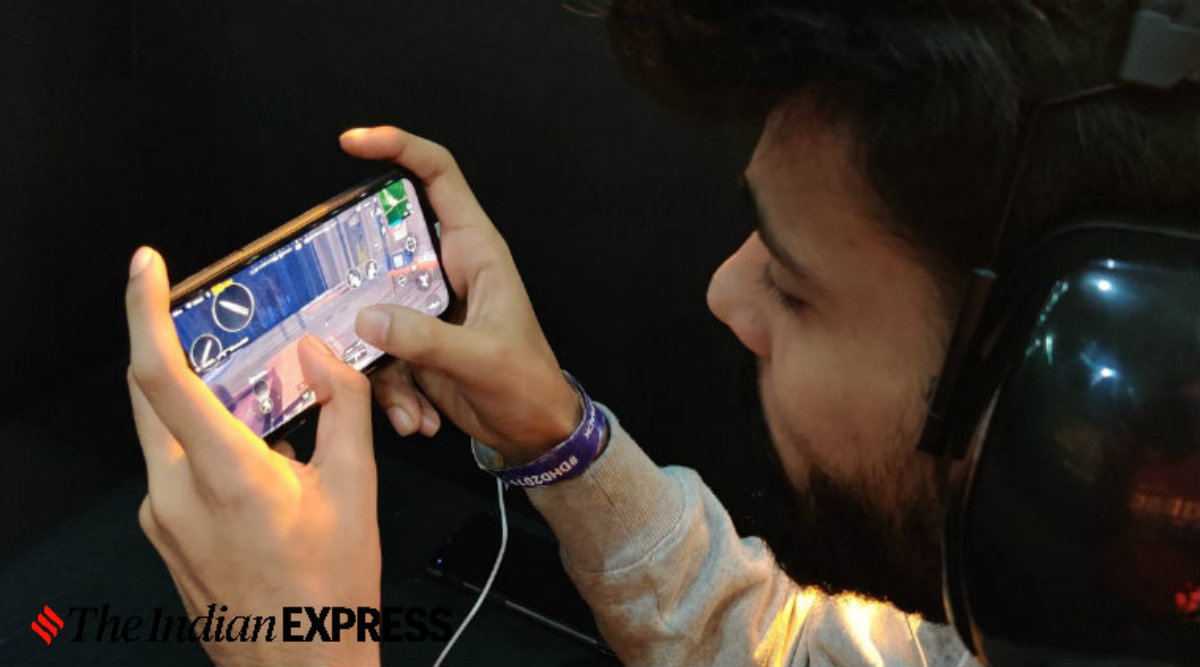 The playgrounds were emptier than usual, and Zoom tuition classes missed a few students as everybody logged into PUBG before the game vanished from mobile app stores. (File photo)
The playgrounds were emptier than usual, and Zoom tuition classes missed a few students as everybody logged into PUBG before the game vanished from mobile app stores. (File photo)And just like that, the plug was pulled on the biggest video game in India, leaving millions scrambling for the last chicken dinner — the ultimate prize the last standing gamer got at the end of this virtual combat.
On Wednesday, the Information and Technology Ministry banned 118 Chinese-linked mobile applications, including the popular multiplayer game PUBG. The move comes after the government issued a similar ban on 59 apps in June, and three days after Prime Minister Narendra Modi’s Mann ki Baat broadcast in which he called “upon the young talent of the country to make games in India and make games based on India”.
Minutes after the announcement Wednesday, Naman ‘Mortal’ Mathur — PUBG’s 24-year-old poster boy in India who has built a following of more than 6 million on YouTube, playing the battle royale game — summed up the sentiment in a tweet: “Toofan aagya hai.”
The playgrounds were emptier than usual, and Zoom tuition classes missed a few students as everybody logged into PUBG before the game vanished from mobile app stores.
Mathur was soon pacifying 80,000 viewers on a live stream, rattling off video game titles he will be migrating to. Words of mourning slipped in — “Let’s just say that all of us have lost one year of progress by this announcement…
The people who only played PUBG, only wanted to see that, will leave YouTube” — but Mathur, like other popular streamers, emphasised that “nothing is bigger than the safety of the country”.
In Wednesday’s statement, the Ministry said it had received many complaints about “misuse of some mobile apps available on Android and iOS platforms for stealing and surreptitiously transmitting users’ data in an unauthorised manner to servers which have locations outside India”. This is after PUBG Mobile issued a revised privacy policy late July, stating that all collected data from India players will be stored on local servers within the country.
While PUBG (PlayerUnknown’s Battlegrounds) was launched as a computer game by South Korean company Bluehole in 2017, the mobile version was published by Chinese conglomerate Tencent a year later.
“PUBG Mobile was by far the biggest game in India, both by downloads and revenue. The game has been downloaded nearly 200 million times in the country, with the Lite version being the most popular,” says Daniel Ahmad, who covers the video games market in China and Asia as a senior analyst at Niko Partners. “The ban will not only impact players of the game but the fast-growing esports and influencer ecosystem in India.”
Tagging Modi and Sports Minister Kiren Rijiju, professional gamer Abhijeet Andhare tweeted: “Few days ago government spoke about creating more jobs in the gaming sector and now they’ve banned an app that gave countless jobs to aspiring gamers in this country. PUBG created hope for a millions of kids around the country (sic).”
Andhare, 28, is the player-coach for Entity Gaming, one of India’s premier esports organisations which has been making waves in international PUBG events and wooed American outfit ‘Team SoloMid’ (TSM) into a partnership in March.
Varun Bhavnani, director of Entity Gaming, says they are evaluating the situation and hoping for players representing the country to be allowed to play.
“We are still waiting. We are hopeful that there will be some concessions by the government for competitive players, that these teams are allowed to participate. The tournaments are still going on, and the ban will have some adverse effect.”
Ahmad said the ban will impact Tencent’s presence in India.
“Excluding China, nearly 40 per cent of downloads for the game in the past year were from India”, said Ahmad, adding “We do not expect a significant material impact on revenue as India only accounted for 3% of the game’s revenue excluding China.”
Incidentally, PUBG did not receive a licence to launch in China, and Tencent had to create a new version called Peacekeeper Elite (Game for Peace) with minor tweaks (removal of blood, corpses) for official release.
Bhavnani says the ban should serve as a rallying cry for Indian developers. “The game itself is banned in China. This is a chance for us to rise as an army. We have the best developers and programmers. We need to create something of our own and throw it in China’s face.”